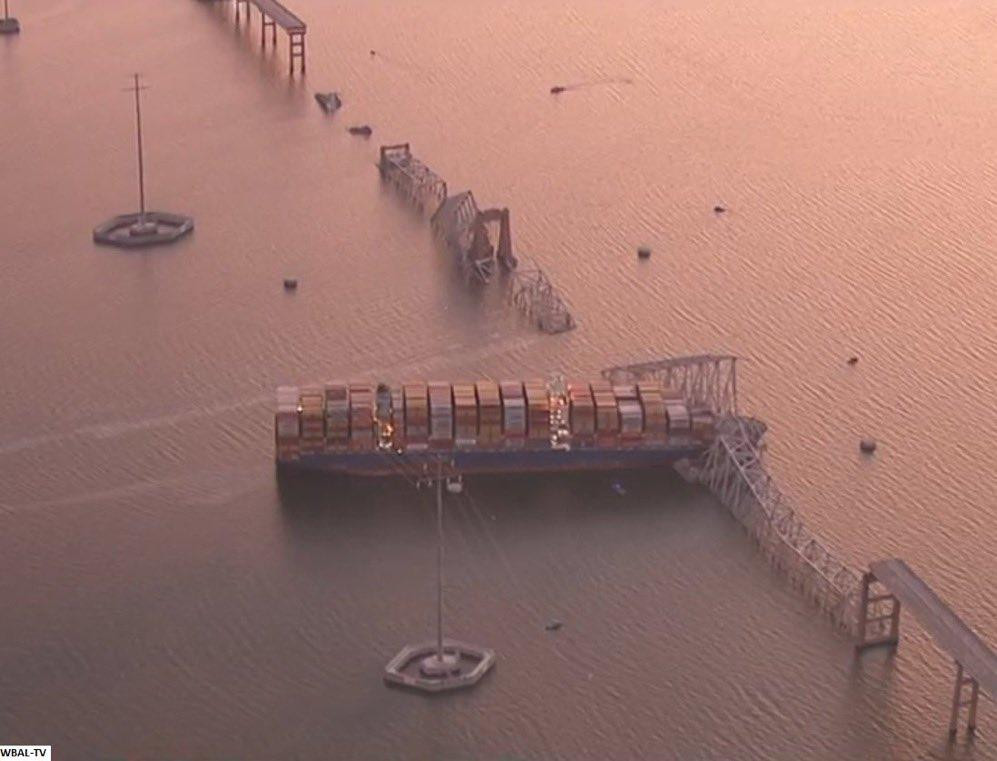Maryland will receive a $350 million insurance payment from Chubb following the collapse of the Francis Scott Key Bridge on March 26, though that will only cover a small percentage of the billions expected to be needed to rebuild.
CNN Business reported the insurance payout via WTW, the broker handling Maryland's policy. Henry Daar, head of property claims at WTW North America, confirmed to the news outlet the $350 million payout represents the policy's maximum coverage, and it will be made soon, rather than waiting for the new bridge's construction to begin, which could still be years from commencement.
The City of Baltimore has initiated legal action against Grace Ocean Private Limited and Synergy Marine PTE LTD, the ship's owner and manager, respectively, accusing them of negligence due to an "incompetent crew," after the Singaporean-flagged container vessel, Dali, crashed into a bridge support column.
The cause of the collision has not been officially determined. A preliminary report from the National Transportation Safety Board is expected soon.
The incident disrupted operations at the Port of Baltimore, temporarily halting the transit of goods and trapping ships. Recovery efforts have been extensive, involving more than 350 personnel from 53 different federal, state and local agencies, and the removal of 3,000 tons of wreckage and debris to date.
A recent report from Container xChange said the Container Price Sentiment Index (xCPSI), which tracks shipping container prices, saw a dramatic jump from 26 to 61 points in just 11 days between March 18 to March 29, three days after the Baltimore bridge collapse. It subsequently settled back into the 34- to 46-point range, suggesting a consistent expectation of stable and gradual increases in container prices.
However, container prices in China are experiencing significant volatility, with rates changing rapidly within just a few days, the May 2 report said. The average container prices in China have reached around $2,500 to $2,700 USD as a result of rising complications resulting from the geopolitical tensions and uncertainties.
"China's container market has always been dynamic, but recent developments have triggered significant price hikes," noted a Container xChange customer and container trader based in China. "Container prices are continuously climbing, adjusting roughly every 48 hours. This increase largely stems from uncertainty related to the Red Sea situation, as well as suppliers and sellers looking to hedge their risks. We've seen prices for a 40-foot cargo worthy container jump from $2,200 to $2,300 in April to $2,500 to $2,700 currently."
“As geopolitical tensions continue to escalate, economies are strategically adding stops to their cargo routes to mitigate risks and ensure the smooth flow of goods. The importance of transshipment hubs is becoming increasingly evident, as they play a crucial role in facilitating these complex supply chains. This shift emphasizes the need for flexibility and strategic planning in global trade, as businesses navigate a rapidly changing environment,” said Christian Roeloffs, cofounder and CEO of Container xChange.









